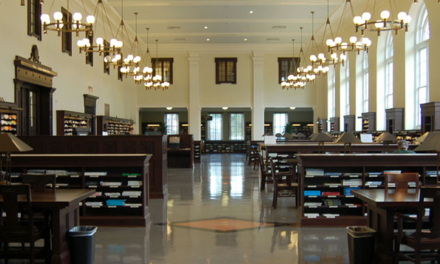Oct. 11 marked the 24th anniversary of National Coming Out Day, part of a long-standing awareness campaign for the gay, lesbian, bisexual and transgender community. The event advocates a message of live-and-let-live tolerance, seeking to shrink the gulf between the LGBT and heterosexual communities. Coming Out Day represents a major advance for the LGBT cause, but it also stands for something much greater. For the world at large, the day symbolizes a rising tide of equality and tolerance, essentially the attitude that it’s okay if people aren’t all the same. While NCOD enjoys an increasingly enthusiastic response each year, one group remains perplexingly closeted – the intellectual right.
Coming Out Day reflects currents that run far deeper than the LGBT cause alone. Sexual tolerance may be the holiday’s central focus, but not its final concern. NCOD ultimately amounts to a single talking point in a much broader dialogue. Its highest objective is the humanitarian objective: that all people be able to express themselves openly and completely.
Hence comes the coinage “in the closet,” an expression for those yet to fully reveal themselves to the public. In this respect, the conservative intelligentsia stands very much in the closet; that is to say, they have a secret to tell.
The Republican Party comprises a highly improbable alliance. They synthesize their platform from the social values of traditionalist religious groups and the fiscal leanings of free-market libertarians. To function as an effective unit, they have to marshal these two camps behind a single banner. Consequently, each group sees first to the promotion of its own aims then adopts its ally’s policies only after the fact. This relationship forces anyone on board with just one of these agendas into an awkward position. For right-wing intellectualism, a philosophy interested in fiscal policy, the operational mantra has to be “economic conservatism first, social orthodoxy later.” Thinkers who never enlisted to defend the social right are then forced to align with them as an act of political survival. Without the social right, conservatism seems unviable, but with them, it is painfully muzzled. The right-wing intellectual’s secret is just that then – he never signed up to fight a war on women, the LGBT community or the stem cell industry. He is, in fact, a closeted social progressive.
Consider an excerpt from a recent column by intellectual titan and friend of the Republican Party George Will.
“A significant date in the nation’s civil rights progress involved an African American baseball player named Robinson, but not Jackie. The date was Oct. 3, 1974, when Frank Robinson, one the greatest players in history, was hired by the Cleveland Indians as the major leagues’ first black manager. But an even more important milestone of progress occurred June 19, 1977, when the Indians fired him. That was color-blind equality.”
Obviously, Will had other reasons for writing, but this passage does contain a certain ethical imperative – people’s entitlement to fair treatment should not depend on their race. Are we to believe that an Oxford graduate and son of an epistemologist cannot recognize the logical jump between “should not depend on race” and “should not depend on any uncontrollable characteristic?” Is it really likely that a self-confessed agnostic has any interest in a few vague lines of Leviticus?
Will does not agree with the social conservative; he needs him as an ally. To secure his readership, he has to confine his personality to a set of boundaries backed by the Republican Party. Otherwise, he might go the way of the more free-spoken conservative Andrew Sullivan, a man of equal intellectual caliber but far less authority. To avoid ridicule by the same institution that celebrates him, Will remains deferentially silent.
In 2011, Will appeared on the television program “The Great American Debate” alongside yet-to-be Vice Presidential Nominee Paul Ryan. The University of Virginia organized the broadcast to probe the question “Is there too much government in my life?” Strangely but likely strategically, Ryan and Will sought to limit the debate to the economy, sidestepping any questions on social policy. When their opponents challenged their position on gay marriage, Will became silent while Ryan dodged, “that’s a different debate about what we believe are the origins of life and things like that.” A different debate? So a gay couple told by their state they can’t marry would have nothing to say about “too much government” in their lives?
Like Will, Ryan is a thinker yoked to a party that requires an unthinking social conservatism. Unlike Will, he cannot afford silence because he cannot win elections simply by being inoffensive to his base. He needs voter turnout, and as a Republican, votes only come with the support of both wings of the party.
To realize his fiscal vision, Ryan has to feign enthusiasm for the Republican social agenda. In 2005, Ryan gave a speech to the Atlas Society, an organization dedicated to the philosophy of the controversial Ayn Rand.
He admitted, “But the reason I got involved in public service, by and large, if I had to credit one thinker, one person, it would be Ayn Rand.” His admiration for the Russian novelist betrays him. While Rand’s moral opinion of homosexuality was negative, she insisted on the individual’s right to love freely. Ryan’s political raison d’etre directly contradicts the social values he is alleged to support. For a man so heavily steeped in the heritage of libertarianism, Ryan’s social conservatism seems little more than a cheap show.
Will and Ryan represent a problem much larger than a journalist or congressman. They are indicators of a systematic, wholesale denial across the Republican platform – the delusion that anything unites the party’s two arms besides necessity. Consider this then: why not encourage Ryan, Will and all the company of the intellectual right to come clean on their social values? Institute a new Coming Out Day for the ranks of Republicans who no longer wish to sacrifice social justice on the altar of the economy. After all, what is Coming Out Day about if not helping people out of the closet?
Charles Woodlief is an Oxford student in the Class of 2016.
The Emory Wheel was founded in 1919 and is currently the only independent, student-run newspaper of Emory University. The Wheel publishes weekly on Wednesdays during the academic year, except during University holidays and scheduled publication intermissions.
The Wheel is financially and editorially independent from the University. All of its content is generated by the Wheel’s more than 100 student staff members and contributing writers, and its printing costs are covered by profits from self-generated advertising sales.




